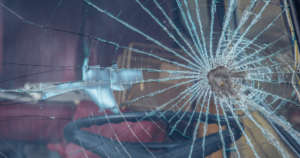 Approximately 12,500 spinal cord injuries happen in the U.S. each year, according to the National Spinal Cord Injury Statistical Center. Spinal cord injuries can be devastating to victims, and can have a significant impact on their loved ones, as well. However, if you believe you suffered a spinal cord injury due to another’s negligence you may be entitled to compensation for your injuries, lost finances, and pain and suffering.
Approximately 12,500 spinal cord injuries happen in the U.S. each year, according to the National Spinal Cord Injury Statistical Center. Spinal cord injuries can be devastating to victims, and can have a significant impact on their loved ones, as well. However, if you believe you suffered a spinal cord injury due to another’s negligence you may be entitled to compensation for your injuries, lost finances, and pain and suffering.
Below, Pfeifer, Morgan & Stesiak’s South Bend personal injury attorneys discuss types of spinal cord injuries, their symptoms and causes, as well as what is necessary to pursue a spinal cord injury claim. If you are seeking legal representation for your claim, contact us today for a free, no obligation consultation.
Types of Spinal Cord Injuries
There are two types of spinal cord injuries based on the severity of damage:
Incomplete Spinal Cord Injuries
An incomplete spinal cord injury occurs when the spinal cord is partially severed. The victim retains some of the function, but the degree of function retained depends on the severity and location of the damage.
Common types of incomplete spinal cord injuries include:
- Anterior cord syndrome
- Central cord syndrome
- Brown-Sequard syndrome
- Triplegia
Complete Spinal Cord Injuries
Complete spinal cord injuries involve a fully severed spinal cord. This can result in complete loss of bodily function and motor skills in affected areas. This often results in conditions known as tetraplegia, also known as quadriplegia, and paraplegia.
Although few victims may regain some functionality, they will likely require extensive medical care for the remainder of their lives.
Symptoms of Spinal Cord Damage
Common symptoms associated with spinal cord injuries include:
- Varying levels of paralysis
- Bladder and bowel function issues
- Breathing difficulties
- Chronic pain
- Nerve pain
- Muscle pain
- Headaches
- Frequent infections
- Bedsores
- Mood and personality changes
- Loss of fertility
- Loss of sexual function
- Pneumonia
- Altered or loss of sensation
- Spasms or exaggerated reflexes
If you sustain a spinal cord injury in an accident, emergency symptoms include:
- Pressure in the neck, back or head
- Extreme back pain
- Weakness, loss of coordination or paralysis in extremities
- Difficulty walking and balancing
- Loss of bowel or bladder control
- Difficulty breathing
Causes of Spinal Cord Injuries
Spinal cord injuries may be sustained in a number of different types of accidents. According to the National Spinal Cord Injury Statistical Center, the leading causes of spinal cord injuries in 2014 included:
- Automobile accidents
- Falls
- Gunshot wounds
- Diving accidents
- Motorcycle accidents
- Falling objects
- Medical and surgical complications
- Pedestrian injuries
- Bicycle accidents
- Physical altercations
Compensation for a Spinal Cord Injury
Spinal cord injuries often result in heavy financial damages for victims. These injuries require costly medical treatment, time off work and may limit function and one’s ability to return to work and earn a living.
In a spinal cord injury claim, the following types of damages may be pursued:
- Medical expenses
- Lost wages
- Loss of earning capacity
- Property damage and/or loss
- Pain and suffering
- Emotional distress
- Loss of enjoyment of life
- Loss of consortium
If the defendant’s actions are considered to be extremely careless by the court, punitive damages may also be awarded. The purpose of punitive damages is to punish the liable party for his or her extremely careless actions that led to causing the injury.
Proving Liability
To provide liability in a spinal cord injury claim, the following four elements must be met:
- Duty of care: The defendant owed the victim a duty of care to avoid causing him or her harm.
- Breach of duty: The defendant breached the duty of care he or she owed the victim.
- Causation: The defendant’s breach of duty was the cause behind the victim’s injuries.
- Damages: The victim must have suffered damages resulting from the accident, such as lost wages and medical expenses.
An experienced attorney will know what evidence is needed to support your claim and can help you pursue the compensation you deserve.
Contact Us for a Free Consultation
If you have suffered a spinal cord injury caused by someone else’s negligence, you may be entitled to compensation for your medical bills, lost wages, and pain and suffering. Our team of dedicated attorneys will review your case and inform you of your legal options.
Request a free, no obligation consultation today. We charge no upfront fees and payment is only due if we recover compensation in your claim.
Call (574) 444-0741 today.












